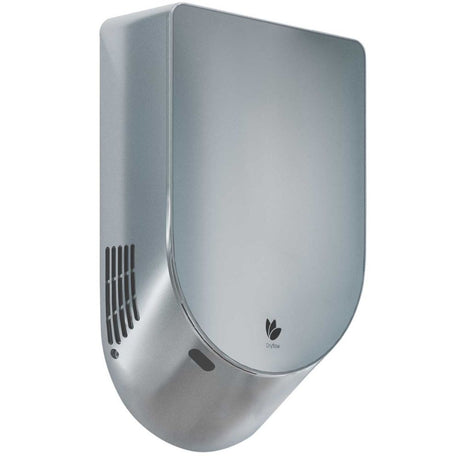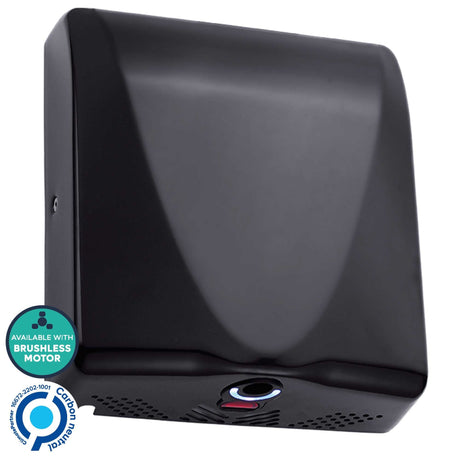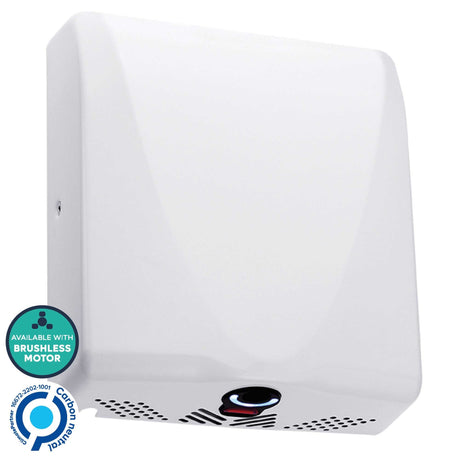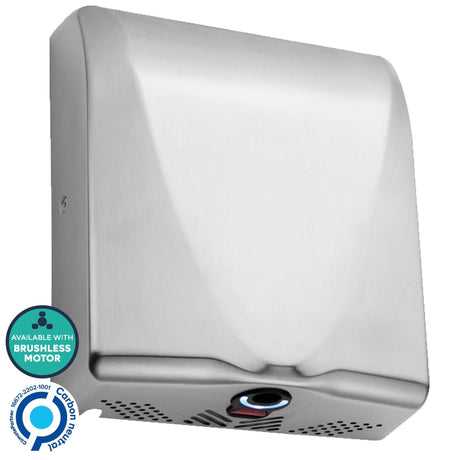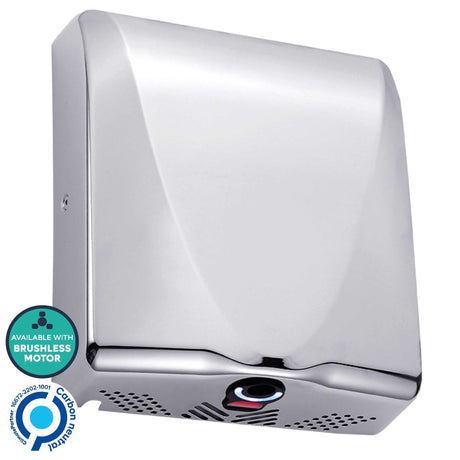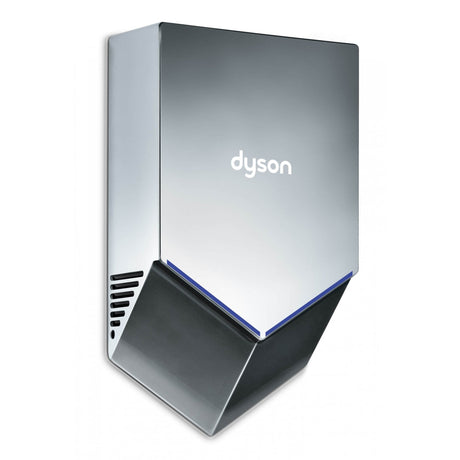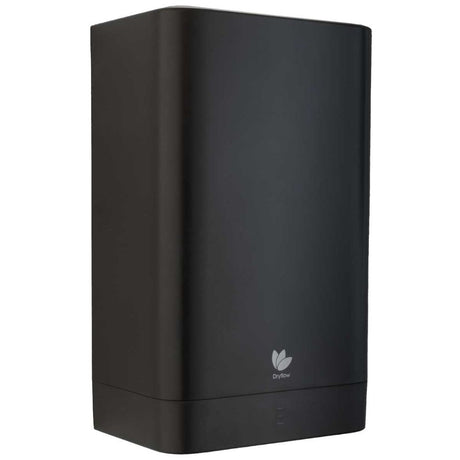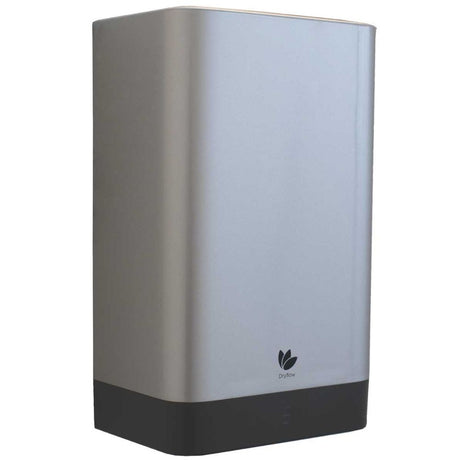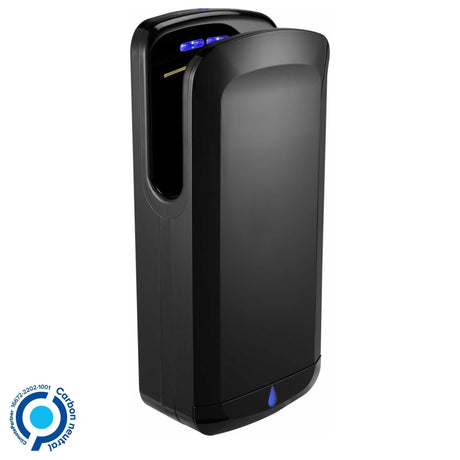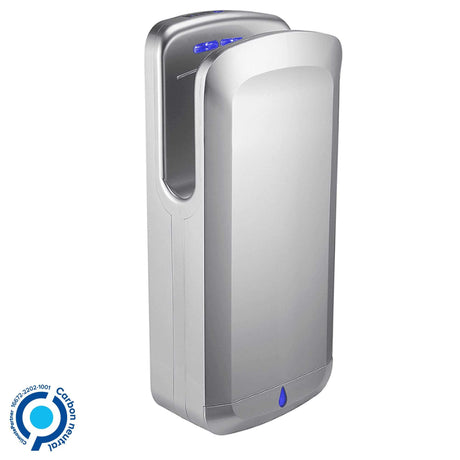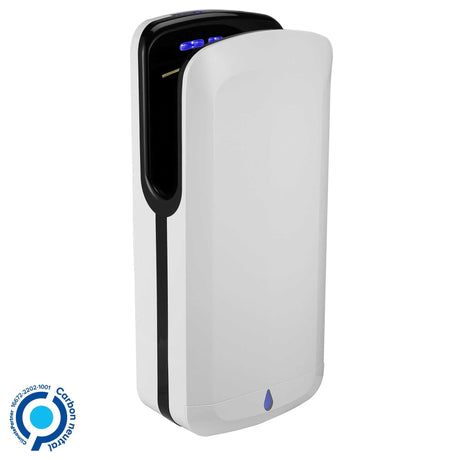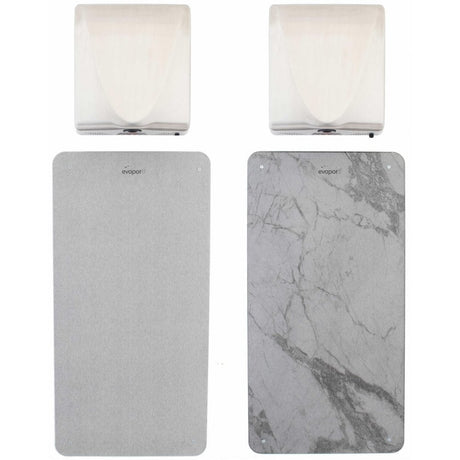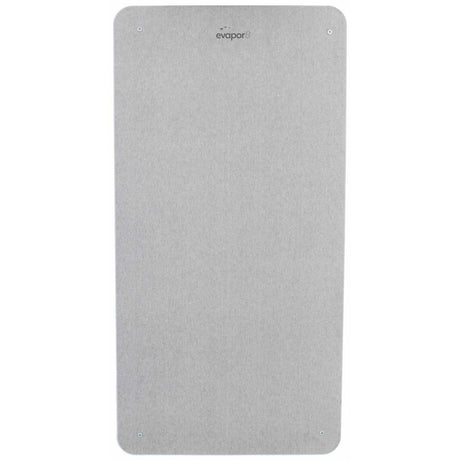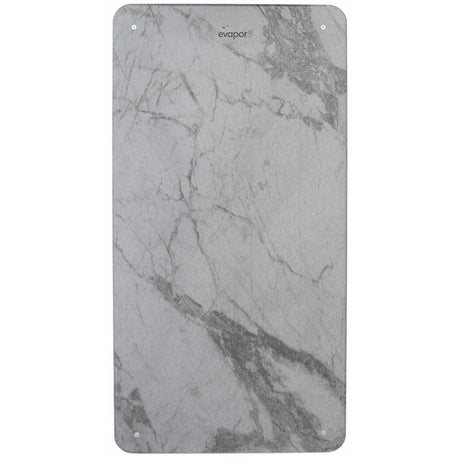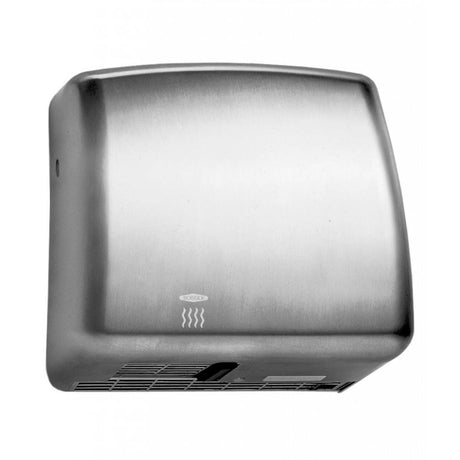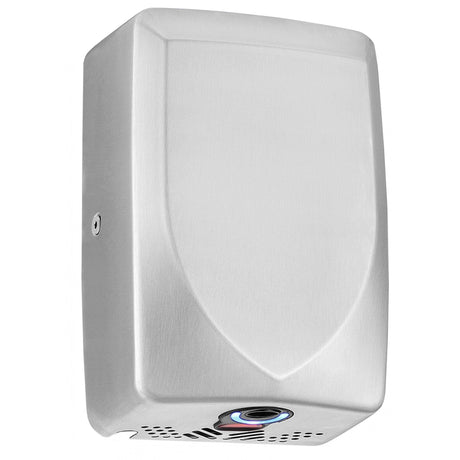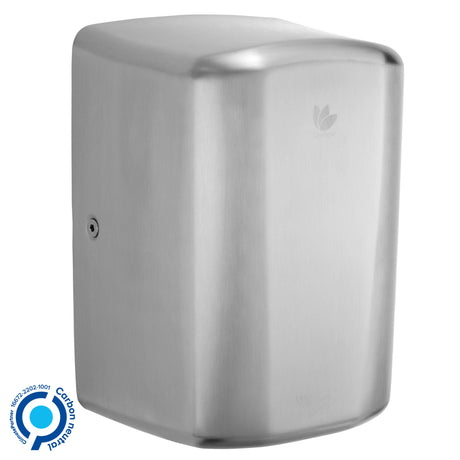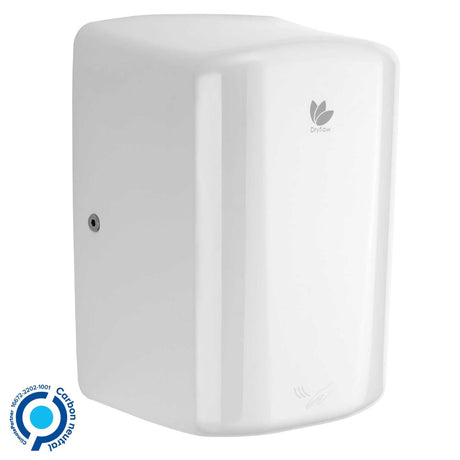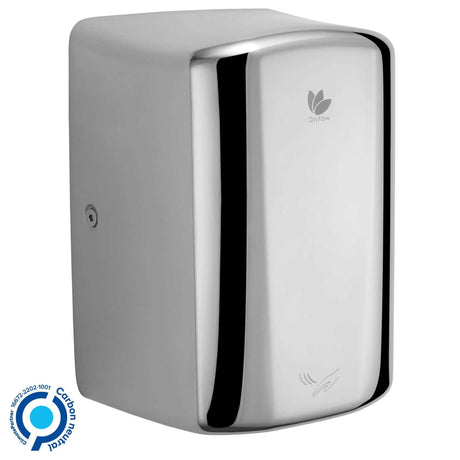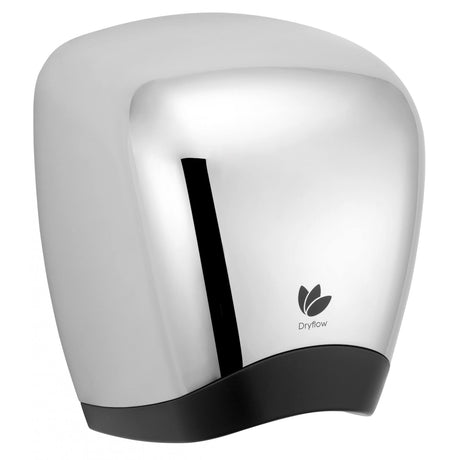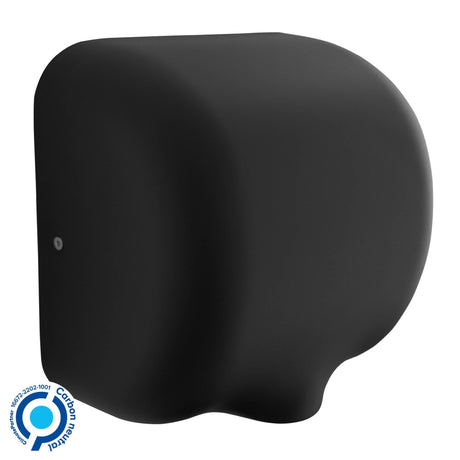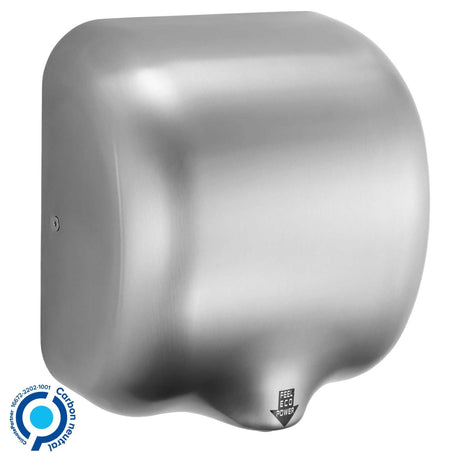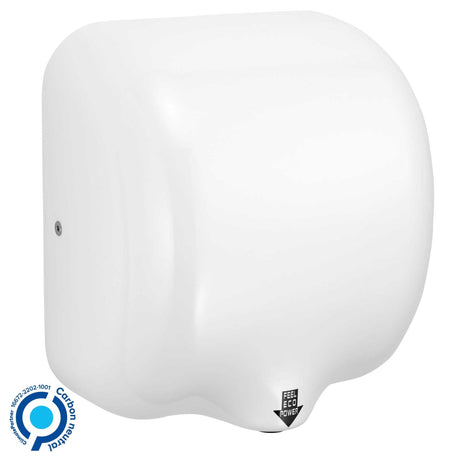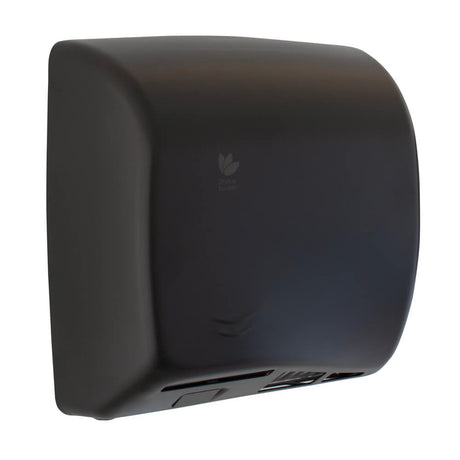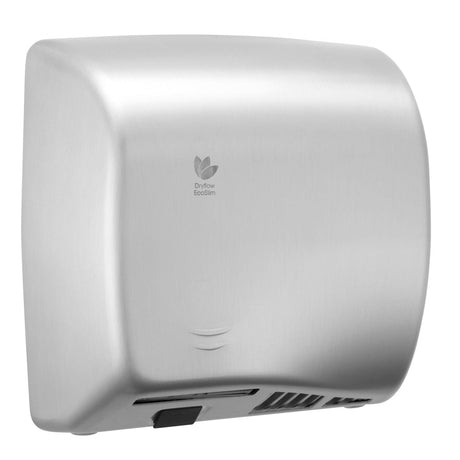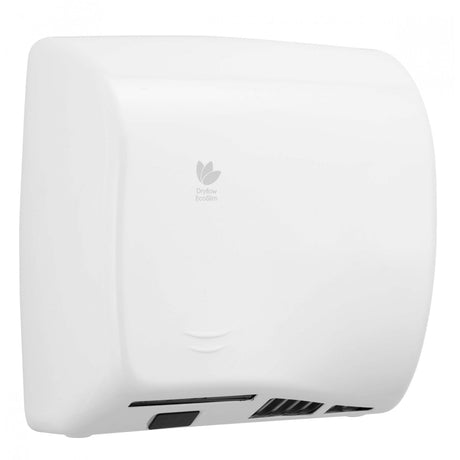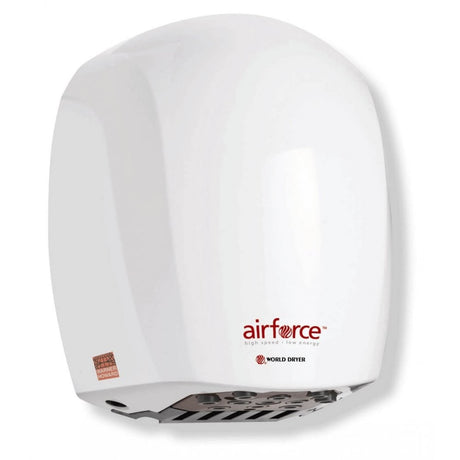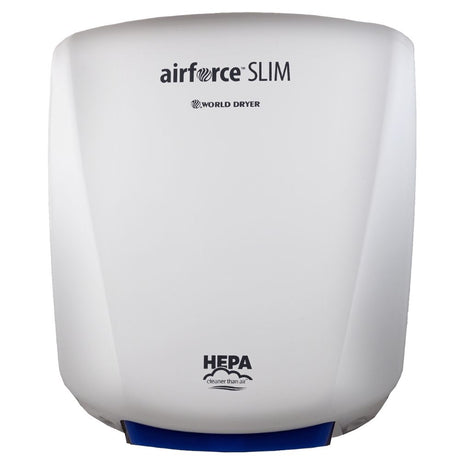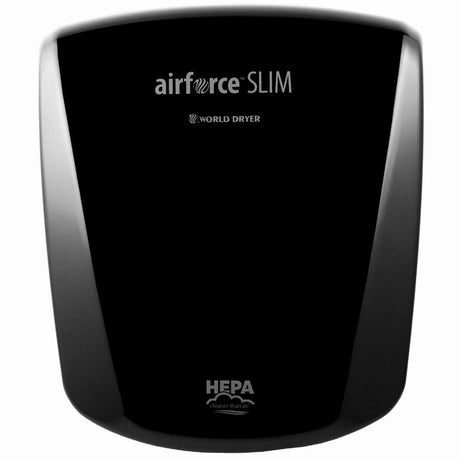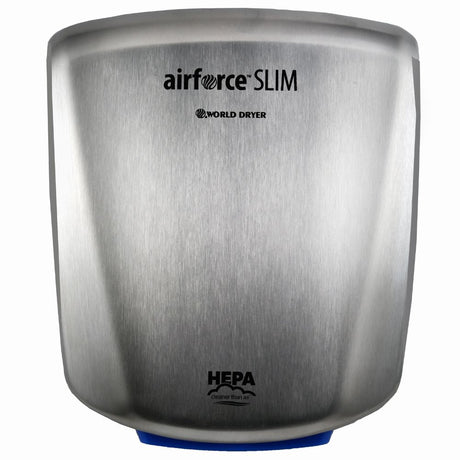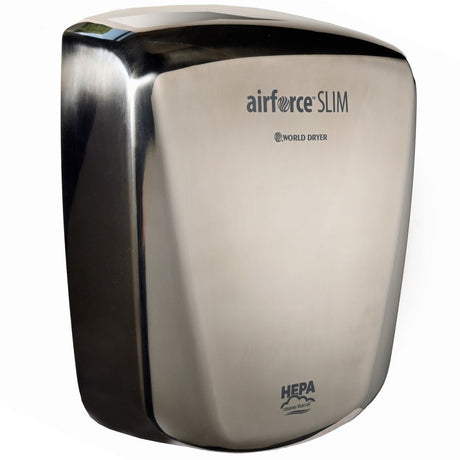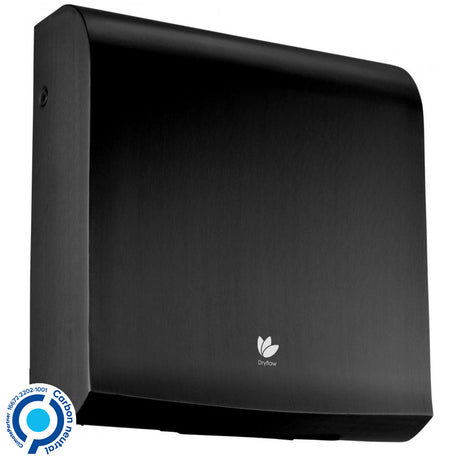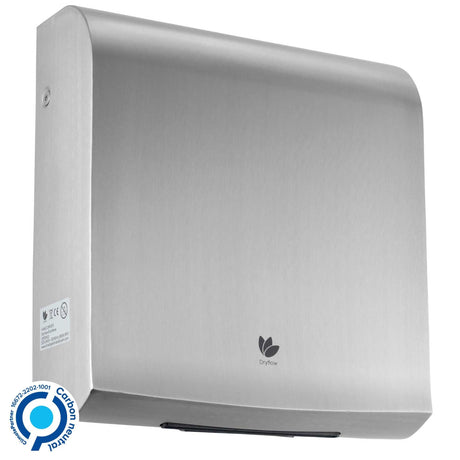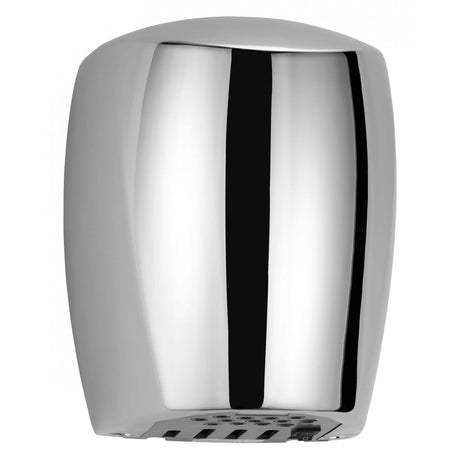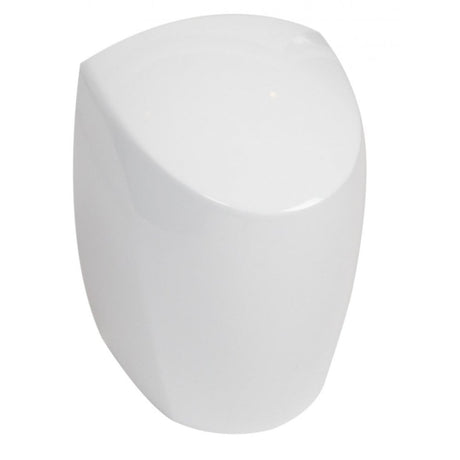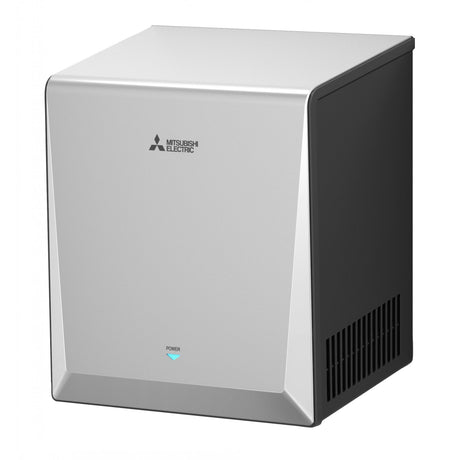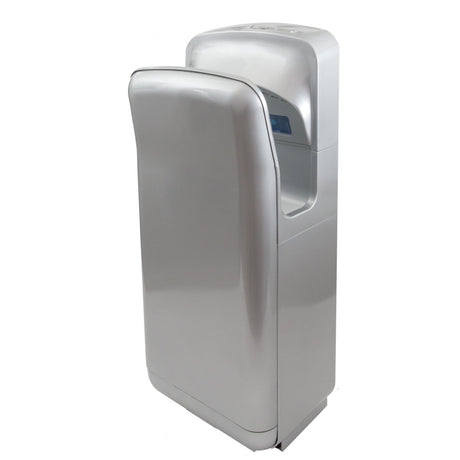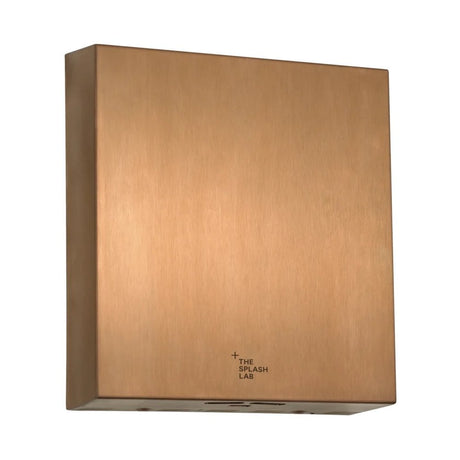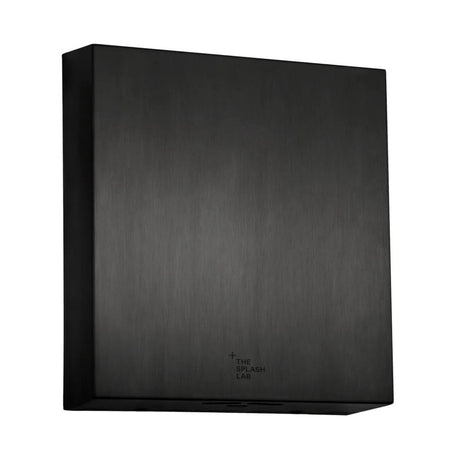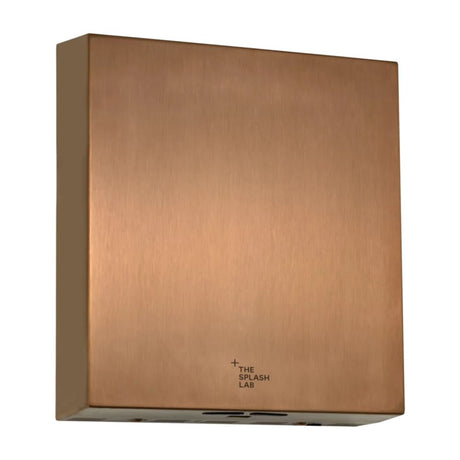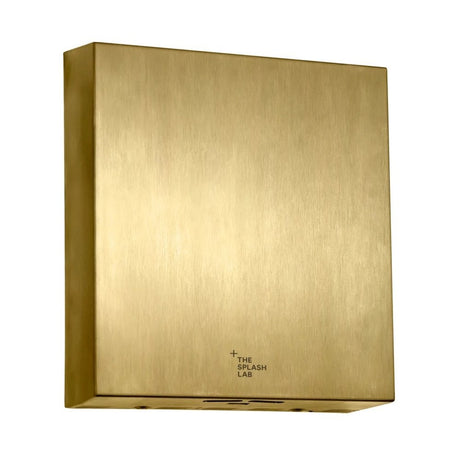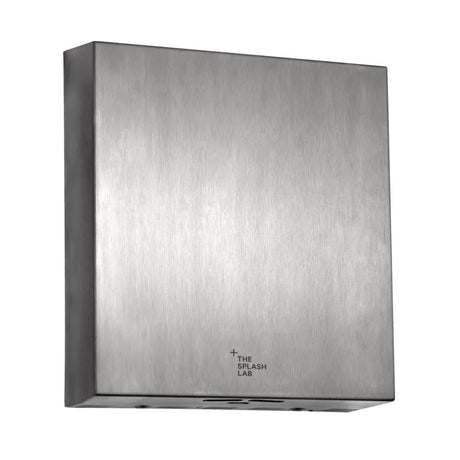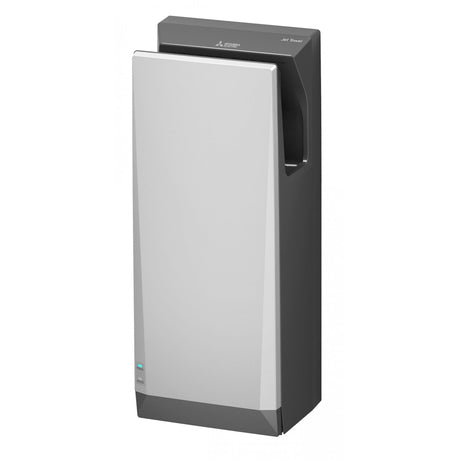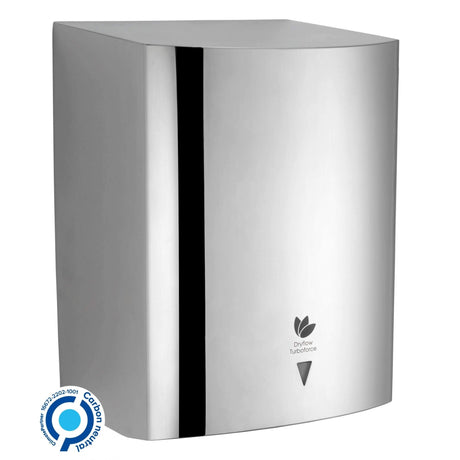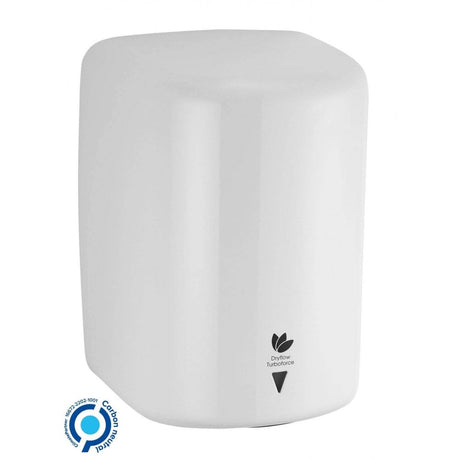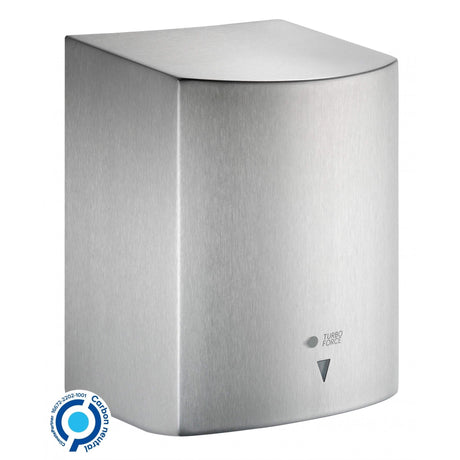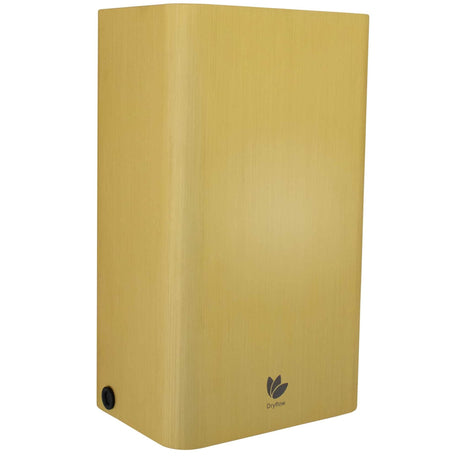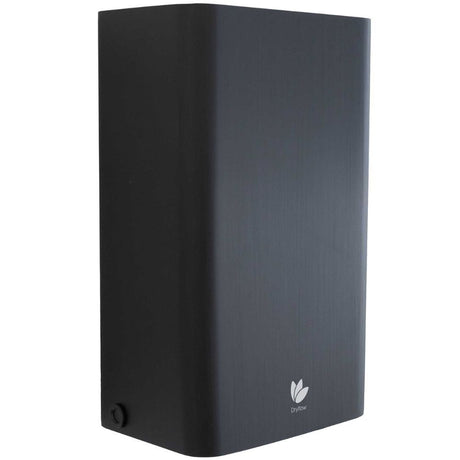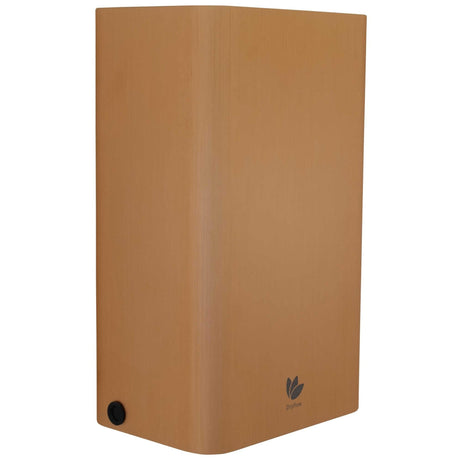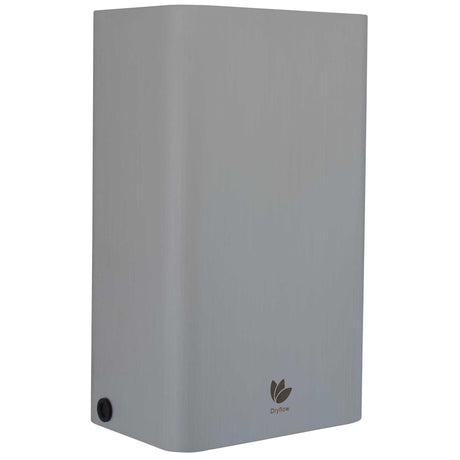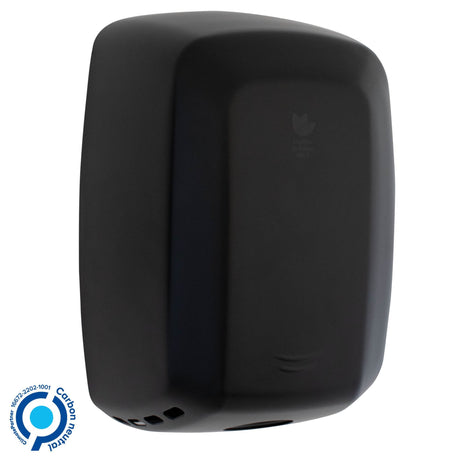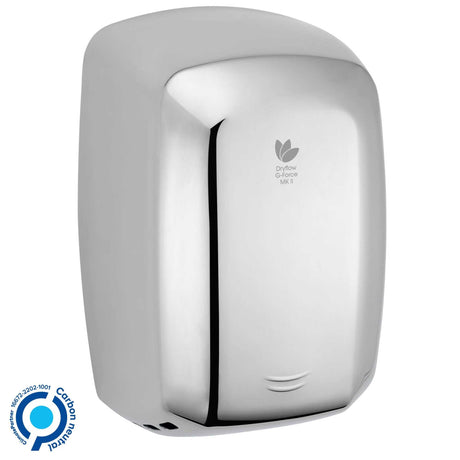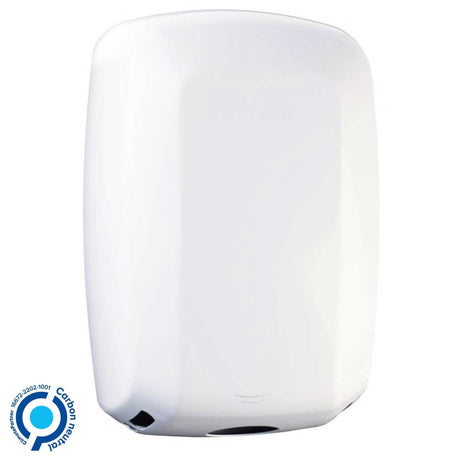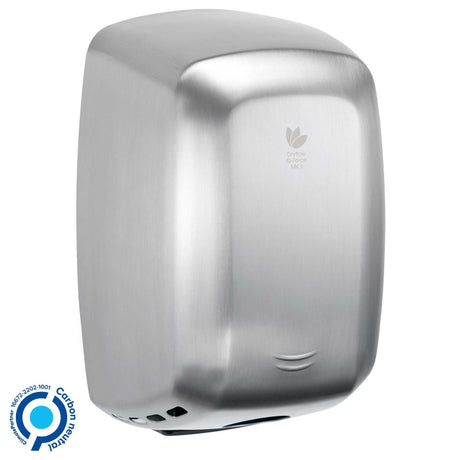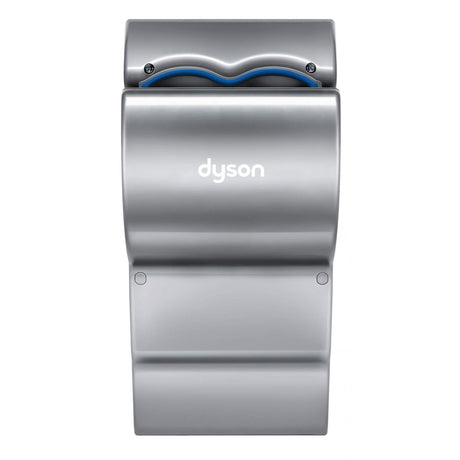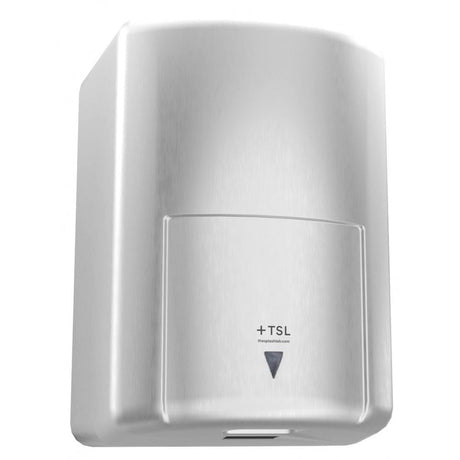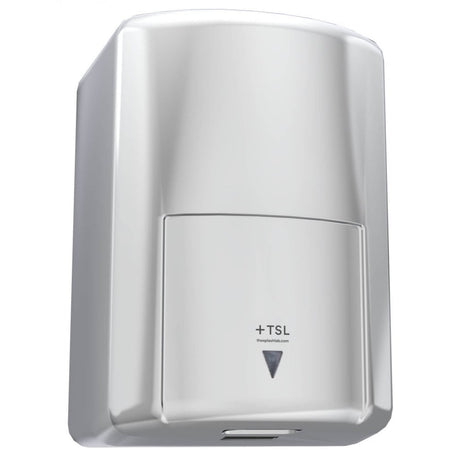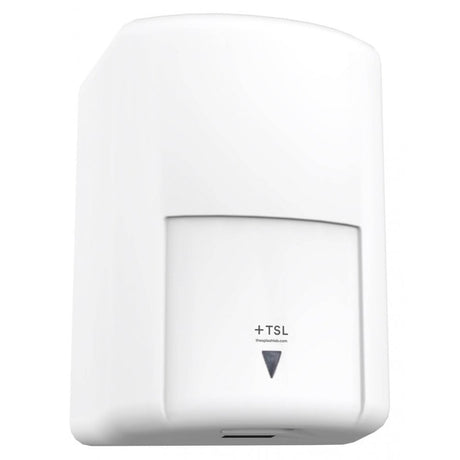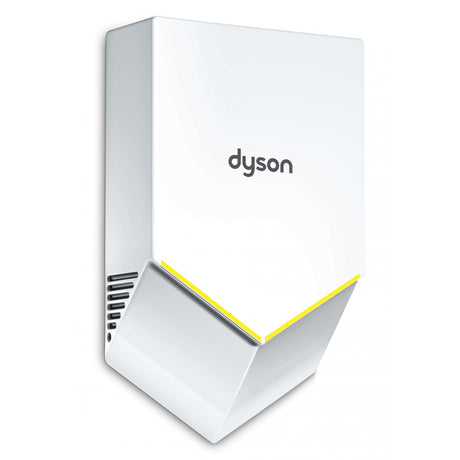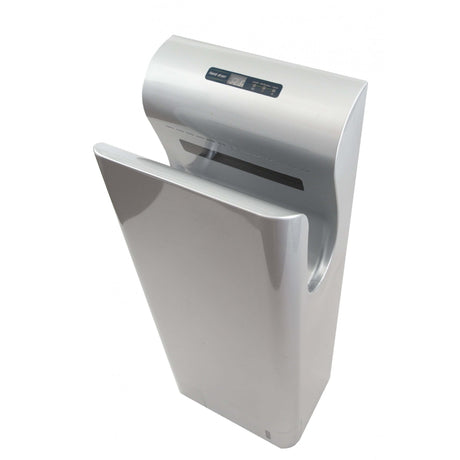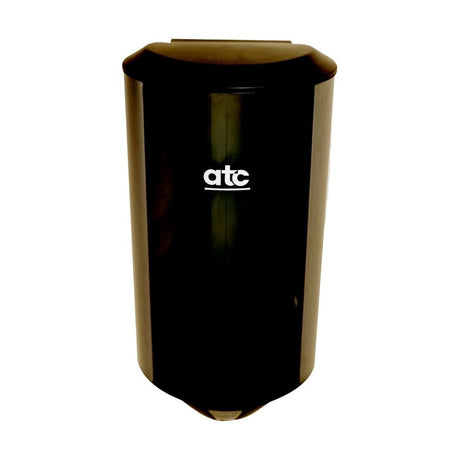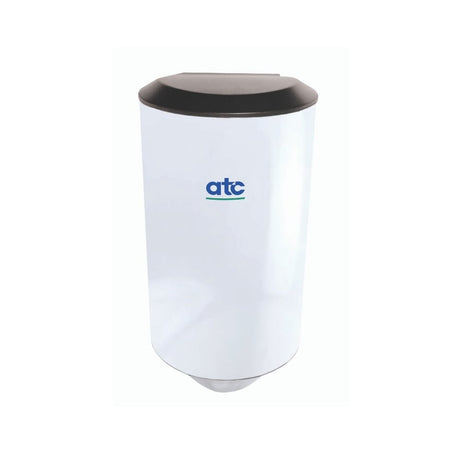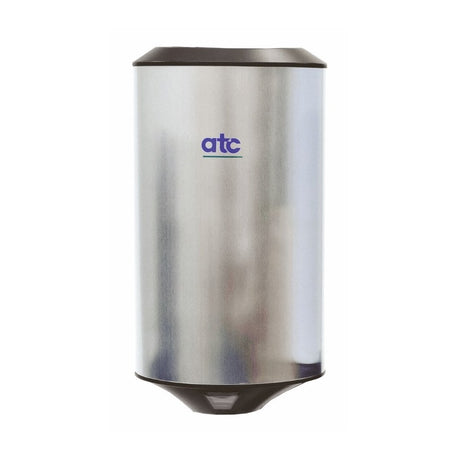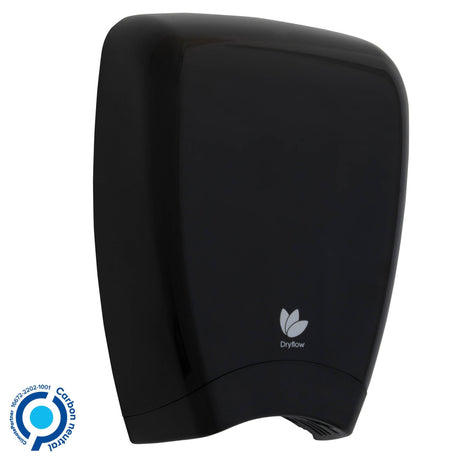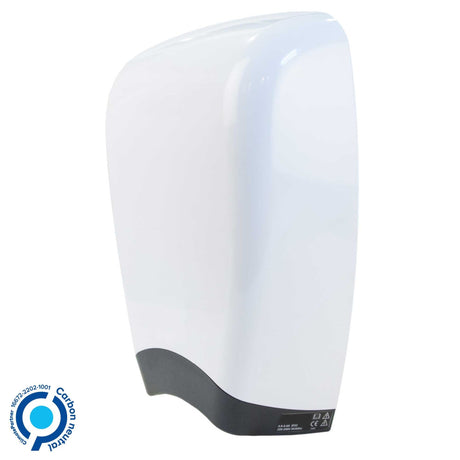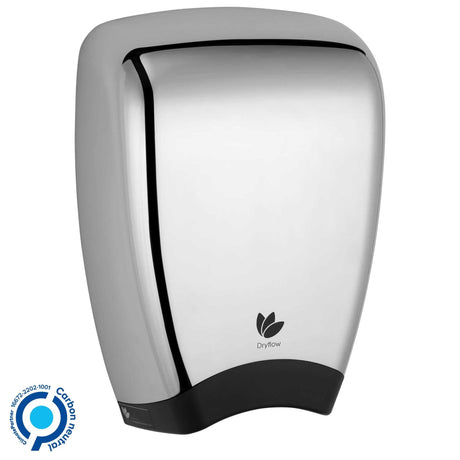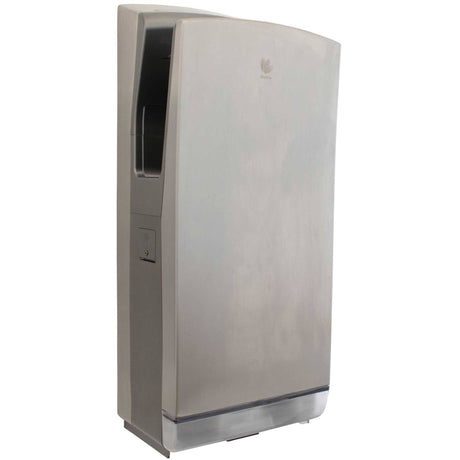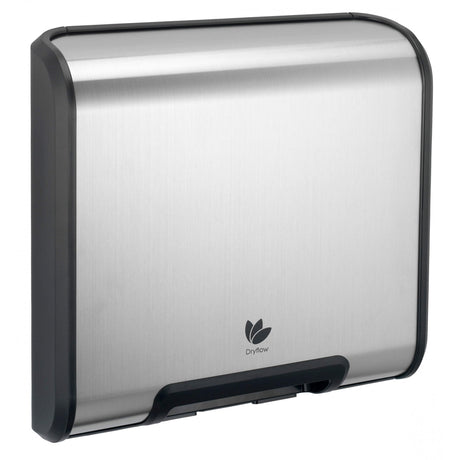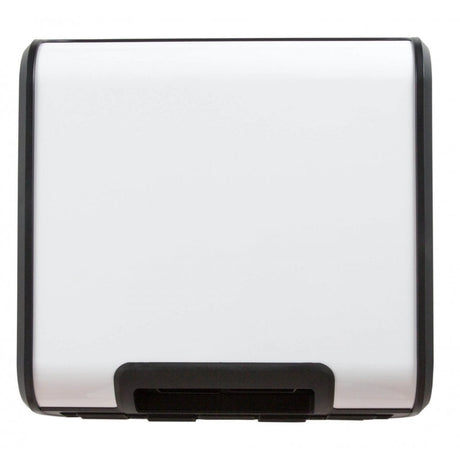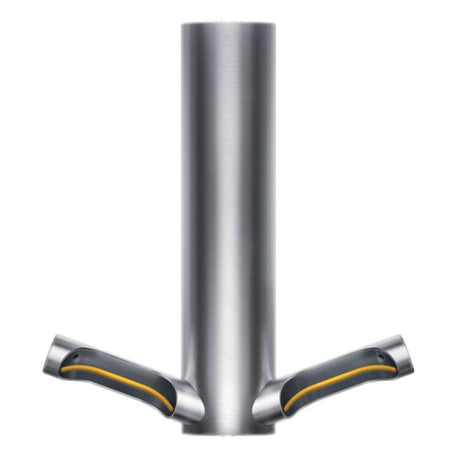All our hand dryers come with total peace of mind
Free Next Day Delivery
All orders over £100 ex VAT ordered before 3pm receive next working day delivery for free. See delivery and return information
Price Match Promise
Find a product cheaper before purchase or up to 30 days after your order and we will match the price or refund the difference. See our price match policy
90 Days Return Policy
Changed your mind? No problem, you have up to 90 days to return your purchase. See delivery and return information
We help you identify your ideal electric hand dryer machine!
If you have very particular requirements for your commercial washrooms, you can filter this category by performance, lifespan, colour, noise, and even the level of ingress water protection you need such as IPX4. If you are not so sure, you can use our online hand dryer product selector tool to help you find the right solution. Alternatively, you may wish to call one of our commercial bathroom hand dryer experts on 0114 3540047 or check out our blog.
How to choose the right hand dryer
Price
- What is your budget? In general, you will need to spend more if your hand dryers get a lot of use. However if your hand dryers will get less than 100 uses a day, you don't need to spend lots to get years of active service
Location and noise level
- The type of dryer you need is often location-specific. For example, hand dryers for schools may need to be heavily vandal-resistant, have adjustable noise so they can be turned down next to classrooms and libraries, and be able to cope with the amount of use they will get. Again, we can easily help you find the ideal wall mounted hand dryer whether it's for an office, school, factory, or hospital simply by using the smart search or calling our experts.
Hands under" Vs "hands in"
- A “hands under” hand dryer is the traditional style of hand dryer where the unit is higher on the wall and the hands are placed underneath to dry. They take up less space than a "hands in" blade style unit.
Benefits of Hands-in style hand dryers
- Collect water driven off the hands, keeping floors, walls and users dry
- Scrape moisture from both sides of the hands creating fast dry times
- Are generally made for high traffic facilities with the exception of the Dryflow Jetforce Junior hand dryer which is ideal for low traffic facilities looking for all the benefits of a “hands in” style dryer, without needing to pay the price of a high traffic motor life.
Running costs and carbon footprint
- Old conventional hand dryers relied on heat to dry as motors were slow, meaning a lot of energy was required. Being able to turn off the heater element keeps running costs really low. Powerful airflows are the driver of faster dry times. So, look for fast drying units with low rated powers if you want to keep bills down and carbon production lower.
Why Choose A Commercial Hand Dryer?
In simple terms, commercial bathroom hand dryers benefit buildings by:
- Saving money – in the region of 95 to 98%
- Eliminating waste – they produce zero waste
- Drying hands quickly – a thorough dry in 10-15 seconds
- Cleaning the air – Some have HEPA filters and ionizers
- Preventing sink and drain blockages caused by paper products
- Saving staff time ordering and replenishing
- Cutting carbon emissions
- Preventing trees from being used for disposable items
- Never running out of air
- Lasting for years and years
Should you buy or lease commercial hand dryers?
The choice as to whether to buy or rent/lease depends on a number of factors. If you want to keep upfront costs down, especially the cost of installation then wrapping up the whole deal as a rental may work very well for you. Renting provides peace of mind should anything go wrong. Leasing the dryer may fit with the lease period you have for your building. Renting also enables you to write off the cost as an expense rather than depreciate as a capital asset. Many businesses prefer to lease for these reasons. Buying outright normally works out cheaper in the long run, so if cash is not an issue, a good dryer will give years of service without continually having to pay for it. Read more about renting hand dryers
Should I buy a hand dryer splashback?
These are a very shrewd purchase to protect your walls. Over time, if excess water isn't removed, walls can be subject to wear and tear. A hand dryer wall guard / splashback will prevent this. We recommend you check out the evapor8 splashback, which instantly absorbs and evaporates the water, and in turn keeps water from going on the floor.
What hand dryers would we recommend?
As the number 1 supplier of electric hand dryers in the UK we offer a big selection of brands to choose from. As well as the UK's best-known brand Dyson, we also sell Dryflow, Mitsubishi, Mediclincs, Dolphin, PHS Warner Howard, ATC, Airdri, Biodrier and many more. In fact, there are 21 branded hand dryers manufacturers and companies to choose from, ready to buy or rent from our website.
The best-selling electric hand dryers in the UK by volume are:
- Dyson V Hand Dryer
- Dyson Airblade ab14
- Airforce hand dryer
- Mitsubishi SMART Wave U02
- ATC Cub
- PHS Warner Howard Vitesse
- Xlerator
- Air Fury
- Turboforce Junior
- Dryflow G-Force mark II
Our most recommended units
The top 5 hand dryer dryers in performance testing on our site are:
1. Machflow PLUS Brushless (20 year warranty)
2. Mitsubishi SMART Wave uo2
3. Mitsubishi Jet Towel Wave io1
4. Dryflow BulletDri
5. Dryflow Elite Mark II
This list is based on assessing speed, noise, lifespan, value, vandal resistance, and energy efficiency. It doesn’t mean it will be the correct hand dryer for you. Please check out our smart search or read our best hand dryer reviews for more detail.
What's the best type of hand dryer for you?
Quiet?
- We have quiet models that are particularly suitable for younger age groups and people sensitive to noise. Hand dryers with lower noise may be needed close to classrooms, study areas, meeting rooms, or bedrooms where people are trying to sleep. Find more quiet hand dryers
High-Speed, Powerful?
Energy-Efficient Eco Friendly Hand Dryers?
- Commercial hand dryers that dry fast and don’t use much energy have now become an expectation, so most of our products fit this description. We have a dedicated category and blog article that help filter out the most efficient on the market. We only sell automatic hand dryers on this website, despite there being some residual demand for push-button, manual options, they have high energy consumption and create cross-contamination touch points so we have decided not to offer them. Find more eco hand dryers
Hands In hand dryer?
- This style was invented by Mitsubishi hand dryer and popularised by Dyson. Identifiable by their larger size and dual blades of air that strip water into the U-shape of the dryer rather than onto the floor or wall. We now have a great range of over 12 hands in options to choose from, from economy to premium price. Find more hands in hand dryers
Slim hand dryer?
- If you need a slimline model with easy access for wheelchairs then consider our disabled-friendly range. They are specifically designed for this use, an example being the the Slimforce, a small hand dryer that is compact in all dimensions. The preference for Slim hand dryers in all locations has become obvious in the last few years. Manufacturers have recognised the desire architects and building managers have for minimalist products that leave as much space as possible for users. Many of these sleek units are used for behind mirror hand dryer installations, another current trend in commercial washroom design. Find more Slim hand dryers
Tap/Over The Sink?
- A recent innovation in commercial toilet hand dryer design has seen hand dryers built into tap-like structures to provide over-the-sink hand drying. This is a great innovation as it allows all the excess water to drain into the sink and increases available space in the washroom. Find more over the sink hand dryers
- These are great space saving models, but do take a bit more effort to install as you need to cut out a hole in the wall before inserting them to leave either a wall flushed surface, or a semi-flush exterior.
Choice of colour?
- Depending on the finish you’re looking for, we stock white, silver, and even black as standard. You may also want a metal cover so that you have a stainless steel hand dryer or a chrome hand dryer. Recently a trend has been brass hand dryers, and we have a couple of great options. The Ffuuss range has multiple modern colours including shade variations of yellow, red, blue, gold, and green. On request, we can customise most products in any colour you like! If your hand dryer purchase is part of a washroom refurbishment you might want to take a look at the range of washroom products we offer in different colours and finishes.
We Can Install Your Wall Mounted Hand Dryer
How much does it cost to install a hand dryer? Well that depends on if you have an existing fused spur or not. We understand that many customers may not realize that their bathrooms lack electrical points for electric hand dryers. This can make the job of installing more complex and costly, as additional electrical work may be required. However, despite the initial cost, the investment in hand dryer machines will quickly pay for itself compared to the ongoing expense of purchasing and disposing of paper towels.
At Intelligent, we make the transition to electric bathroom hand dryers easy and hassle-free. With just one phone call to 0114 3540047, we can take care of everything from a simple hand dryer changeover to a complicated installation in a grade-listed building. Whether you need one dryer or 1000, we have the expertise to help and can provide different payment options.
Hand Dryer FAQ's
Below we have provided answers to some commonly asked questions about commercial hand dryers, we hope you find them useful.
How much is a hand dryer?
- You'll see on this page that hand dryer price can vary quite a bit. A popular question is how much is a Dyson hand dryer and as you will see from our selection they can range from approximately £550 ex VAT with just under £1000 ex VAT being the Dyson Tap hand dryer price. depending upon the model but there are some great alternatives out there with just as good a performance for a fraction of the price. Our prices start from £59 so if your looking for a cheap hand dryer then we have units available for all budgets. If you are looking for the best prices, we guarantee to match any competing offer. You will be safe in the knowledge you have the best price, the longest guarantee, and an ethical partner who is contributing to wider society through the 1% for the planet movement.
How do Electric Hand Dryers Work?
- Traditionally, electric hand dryer machines worked by activating a motor, either by a push button or sensor, then blowing air across a heater element to evaporate water from the hands. Modern, commercial hand dryers are touch-free and generate high airspeeds that strip or blow water from the hands, these dryers are 3 x faster and more economical to run as much of the heat is generated as a by-product of the motor, allowing more efficient heaters or no heaters to be used
- If you want to dry your hands in a commercial or public bathroom, there are three options; electric hand dryers, paper towels, or roller towels. This debate will largely focus on commercial hand dryers and paper towels as roller towels have become less viable in recent years. Below we look in detail at which option is best.
How much electricity does a hand dryer use?
- You may be surprised to find out that modern hand dryers use very little electricity because they are much more energy efficient than they used to be. It depends on the rated power but the lower the hand dryer wattage and the faster the drying time, the less it will use. As an example, the Mitsubishi Jet Towel Smart uses just 0.0025 kWh per use. To put this in perspective, each time you boil the kettle, the energy used could power this hand dryer for an amazing 44 uses.
- Hand dryers are a very cost effective way of drying the hands and of course provide no paper waste. Electric hand dryers do not need refilling! Once installed, they will work over and over again at a fraction of the cost of buying paper towels. The most economically-priced hand dryer will last over 140,000 cycles, and premium models will last up to 2 million cycles. To dry your hands 140,000 times with paper towels will cost you £3000 as a minimum, that’s before you factor in bin bags for disposal and staff time spent refilling the dispensers, taking the waste away, and unblocking toilets and sinks. To dry 2 million times with paper towels will cost £40,000!
- A good basic commercial bathroom hand dryer that is capable of lasting 140,000 cycles will cost you £80 to buy, £50 to £175 to fit depending on what needs doing, and £77 in energy. If we take the average, a hand dryer will cost £250 in total vs £3000 for paper towels. In the example of the premium dryer vs paper towels, it would be around £800 vs £40,000 over the life of the product. That’s quite a difference! The difference is even greater when purchasing a high-quality hand dryer machine that will last over 2 million cycles.
- Roller towels are typically quite expensive to rent because they are very labor-intensive and need to be taken frequently to commercial laundries. They have died out as a viable, economic option.
Are hand dryers better for the environment?
- At Intelligent, we are committed to promoting sustainable practices and educating our customers about the environmental benefits of using commercial hand dryers. As a 1% for the planet member, we put our money where our mouth is in supporting environmental projects. We are passionate about electric hand dryers as they are the perfect zero-waste solution for hand drying needs.
- Unlike paper towels, which require cutting down trees and using large amounts of energy, water, and chemicals to produce, our electric hand dryers use negligible amounts of energy and create zero waste. Once used, paper towels end up in landfill or are incinerated, releasing greenhouse gases and contributing to environmental degradation.
- In fact, studies show that drying hands with paper towels can create up to 25 grams of CO2, while using a Dyson Airblade hand dryer or equivalent commercial toilet hand dryer can create as little as 3 grams of CO2. Our hand dryers are becoming even more efficient and use more renewable energy over time, further reducing their carbon footprint.
- In addition, roller towels made of cotton have a large carbon footprint and require high amounts of energy for washing and drying. Our range of low energy, electric hand dryers are certified carbon neutral by Climate Partner, making them the perfect choice for environmentally conscious businesses.
- Explore our range of energy-efficient and carbon-neutral hand dryers today
Are electric hand dryers hygienic?
- A hotly debating subject, mainly because the paper towel industry knows it can never win the environmental or cost argument. Electric hand dryers have an advantage over paper towels, not just because they avoid the nasty scenario of overflowing, damp and unhygienic bins, which have to be emptied, risking disease and virus transmission, but also because they are non-touch whereas paper towel dispensers, paper towels, and bins have to be touched, risking cross-infection. There is also the issue of paper towel dispensers being empty and therefore hands being left wet which is the worst hygiene scenario. The CDC, WHO, and the British government all approve the use of hand dryers during the pandemic despite fake news to the contrary. The pandemic was actually good for the commercial hand dryer industry, as both the German and Japanese governments put hand dryer machines under scientific review to check out the claims of the paper industry. In the end, both approved them as safe for use, thus effectively ending the debate and refocusing back on the environment.
- The biggest thing to remember about hygiene is that bacteria spread more easily from wet rather than dry skin, therefore the single most important thing is to thoroughly wash and dry hands, whichever method you use.
- Many commercial hand dryers are now fitted with HEPA filters which act to clean the air and remove contaminants such as viruses, bacteria, and pollen, they also have ionizers and photocatalytic air cleaners fitted as an extra measure.
- A number of commercial hand dryers have been approved by HACCP for use in food production areas and the NSF for use in clinical locations.
- Roller towels have the issue of remaining damp and breeding bacteria, often you find yourself wiping on a damp, previously used part of the towel, again a hygiene no-no!
- We have written a very comprehensive blog asking how hygienic are commercial hand dryers are in comparison with paper towels. It breaks down all the arguments and is full of high-quality links and resources to scientific papers. You may also want to read the 2022 scientific article Comparison of electric hand dryers and paper towels for hand hygiene: a critical review of the literature article which concludes "We found no data to support any human health claims associated with hand-drying methods. Inconclusive and conflicting results represent data gaps preventing the advancement of hand-drying policy or practice recommendations."
How should I use a hand dryer to get the best results?
- Not many people know how to use a hand dryer correctly to get the best performance. To help you get out the bathroom quicker with fully dry hands use the following guide.
- “Hands under” hand dryers
- Keep your hands flat approximately 5mm from the blade / air aperture, drawing your hands through the airflow from your wrists to finger tips, Move your hands slowly through the airflow, keeping a consistent speed, alternating between front and back each time. Close the gaps between your fingers and keep your thumbs tucked in, so the whole of your hand is drawn through the airflow.
- “Hands In” hand dryer
- Mitsubishi recommend the Jidō Kansō movement. This consists of inserting the hands from the sides of the drying area with the hands drawn through the air so that water on the hands is stripped off away from the user in a controlled manner.
- For more information read the article 4 ways to dry your hands – our guide to doing it properly
Why are hand dryers so loud?
- Not all hand dryers are loud. The evolution of the hand dryer has required them to be as energy efficient as possible. This means removing the heater element, or at least being able to turn it off, as this is where most of the energy consumption comes from. The old-fashioned hand dryers may have been quieter, but they used evaporation of the water from the heat to give dry hands, leading to long queues at the dryer. Not only did demands call for low energy, people also wanted faster dry times. Faster rotating motors whip up rapid air speeds to drive water off the hands, reducing dry time, but the trade-off is a louder noise. However, there are now some fantastic units like the Mitsubishi models that have managed high speed airflows at a fraction of the noise level. Dryflow have low noise hand dryers in their range with great dry times. At present, there is no silent hand dryer with exceptionally fast dry times and low energy consumption, but a lot are very close! Watch this space.
Is a HEPA filter necessary in a hand dryer?
- The importance of a HEPA filter in an electric air hand dryer is still up for debate. The paper industry and Dyson want you to be scared that unless you have a HEPA filter, dirty air is drying your hands. While this might be true, it is not of concern as aerosolised bacteria and viruses will not attach to the skin, they will pass over hands and remain in the air. Therefore, a electric hand dryer without a HEPA filter itself poses no further risk than entering the bathroom does. What is really important is good ventilation, the addition of additional air sterilisation and foremost good hand washing and thorough drying. HEPA filters may be beneficial in reducing the overall viral and bacterial load as particularly the faster units may be pulling 3-5% of the washroom air through the filter every dry and returning cleaner air to the environment. The best way to view a HEPA filter in a hand dryer is probably largely irrelevant to hand hygiene but may improve overall air hygiene which can only be a good thing!
Why do hand dryers have blue lights?
- This is more of a fashion feature; the blue light has little purpose in what some think it does. It has been said that the blue light coming from a hand dryer is UV, there to kill germs on the hands. This is false. UV is in fact invisible and would be dangerous to have it exposed in this way. However, it can be used as a guide to where the airflow is, so does have its advantages in speeding up dry times, giving focus to where to place the hands. Learn more about UV in hand dryers
Why do some commercial hand dryers have hot air and others cold?
- In years gone by, all commercial hand dryers used hot air, then airflows became faster and more dynamic meaning the water was forced from the hands rather than evaporated. Both types still exist and it's very much down to preference. We discuss the advantages and disadvantages of both in this blog article.
What is the difference between brushed vs brushless motor hand dryers?
The most common types of motor used in hand dryers are Brushed Universal Motors (good airspeed, the most common type, medium cost and lifespan) and Brushless DC motors (good airspeed, long-life, low maintenance, premium cost)
Universal Brushed Motors
- Universal motors are so-called as they work on AC as well as DC voltage. They are called ‘Brushed’ because they have carbon brushes for commutation. They are the most widely used type of hand dryer motor because they provide good airspeed, reasonable life expectancy, and are cost-efficient. Through flow vacuum brushed motors have found use in high-speed hand dryers as they have rotating levels in excess of 20,000 rpm, so are able to generate more air force. The carbon brushes will wear over time and require changing.
Brushless DC (BLDC) motors
- ‘Brushless’ means the motor does not have carbon brushes for commutation. The commutation is digitally controlled by a PCB board. The speed is not limited by the friction of the carbon brushes and can be switched thousands of times per second to provide very high RPM which is not possible with other motors. An example is the motor in the Dyson V Blade hand dryer which runs at 90,000 rpm. This motor is sometimes known as a digital motor.
- The reason for the high costs of a good quality BLDC motor is mainly due to the use of powerful rare earth magnets and electronics for switching the motor. Brushless motors have a higher initial carbon footprint however because they have a longer lifespan and reduce maintenance the lifetime carbon footprint is likely to be lower.
- As a rule of thumb, we say a high-quality brushless motor is a worthwhile investment for high footfall locations like airports and shopping centres but for lesser-used locations a brushed motor will do just fine and save initial cost.
When was the first hand dryer invented?
- George Clemens is first credited with inventing the electric hand dryer in 1948, however, its origins actually go right back to 1921. Developed in the US, the first electric hand dryer was a floor-standing model which blew warm air through an inverted blower. The machine was operated by a foot pedal and known at the time as the ‘Electric Hand Towel’. These were installed in factories, barbershops, and washrooms. Mr Clemens traditional push-button design with very warm air and slow-moving airflow didn’t change much until touch-free sensors were introduced in the early 90s. Then in 1993 Mitsubishi invented the Jet Towel. This was developed to dry hands from either side and catch the water drips. Innovation continued in the early 2000s when the US company Xlerator produced a very high-powered dryer from a single jet of concentrated airflow. Since this time the challenge has been to reduce noise, energy consumption and increase hygiene and water collection. A huge range of different designs has now hit the market. The perfect model is still yet to be developed we think, so innovation will continue.
Useful hand dryer resources
We have a series of blog articles that cover questions our customers commonly ask.

 Help me choose
Help me choose


